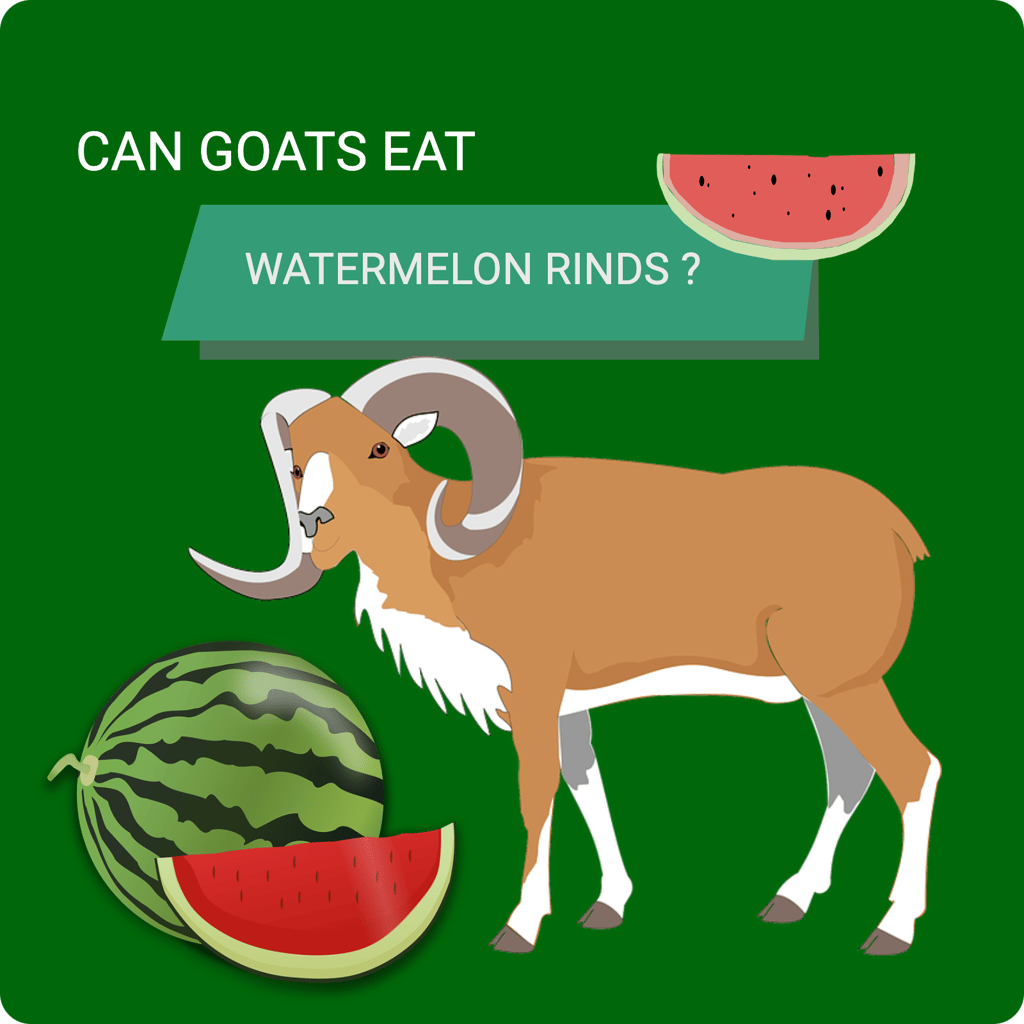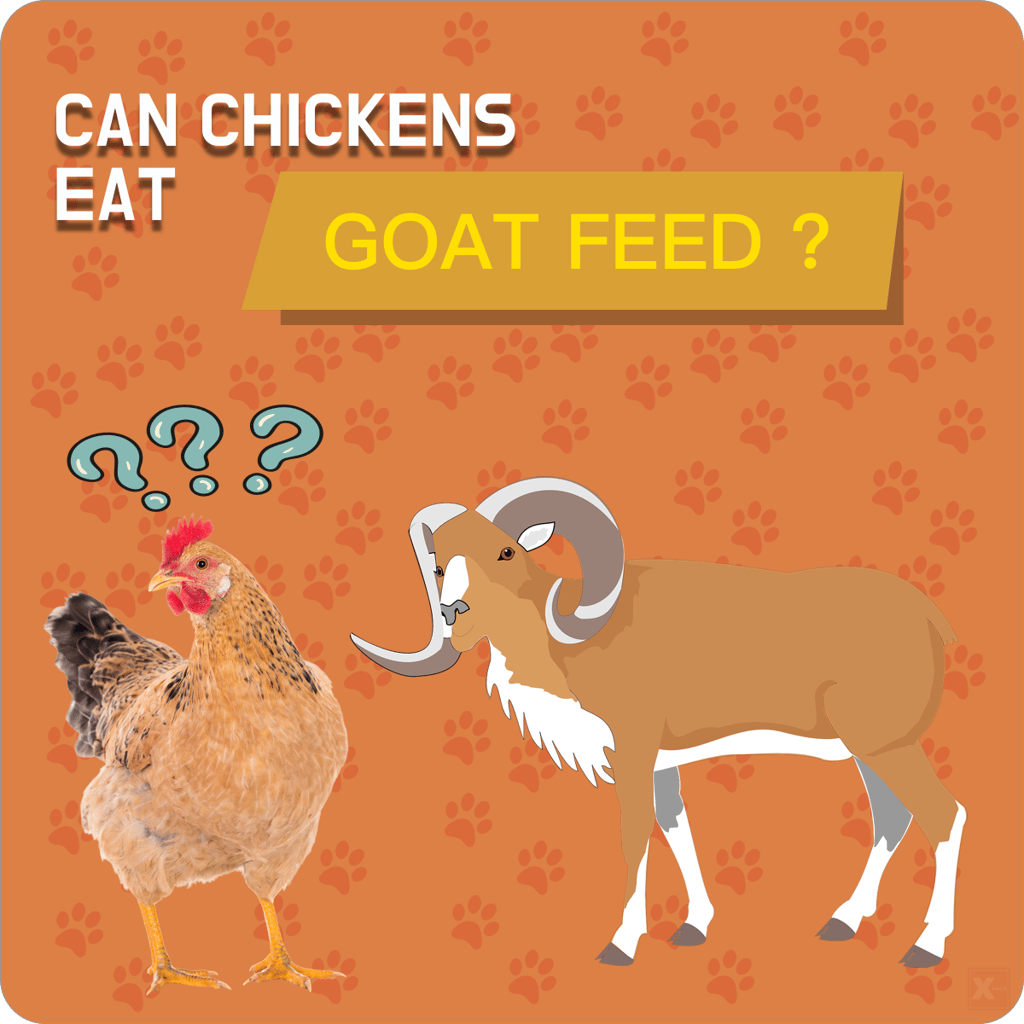Yes, goats can eat watermelon rinds, but it's important to understand a few key factors before offering them this treat. Watermelon rinds can provide some nutritional value and hydration, but there are also potential risks to consider. In this article, we will delve into the digestive system of goats, the benefits and dangers of feeding them watermelon rinds, signs of digestive upset to watch out for, and safe ways to introduce this treat into their diet.
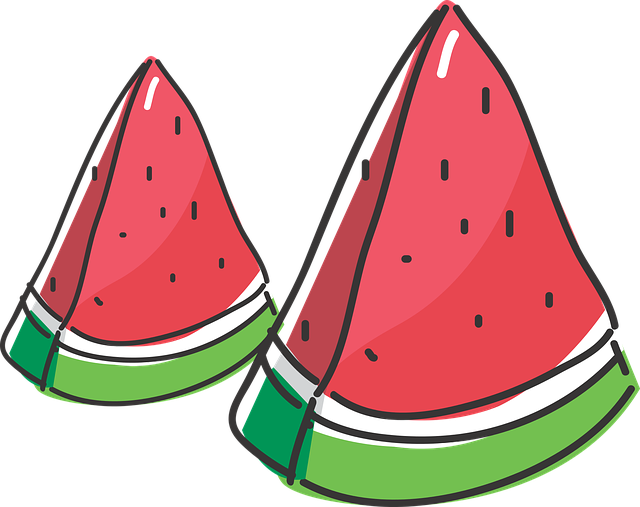
Understanding the Digestive System of Goats
Before we explore whether goats can eat watermelon rinds, it's important to understand their digestive system. Goats are herbivores - they primarily consume plant material for their nutritional needs. Their digestive system is uniquely designed to digest fibrous materials such as grasses, leaves, and branches.
Goats have a four-chambered stomach, including the rumen, reticulum, omasum, and abomasum. The rumen, the first and largest chamber, is home to millions of microorganisms that help break down and ferment the food goats consume. This fermentation process allows goats to extract nutrients and energy from their diet effectively.
As rumination is a crucial part of a goat's digestive process, they chew their food vigorously and regurgitate it multiple times to break it down further. This chewing and regurgitation process is known as "cud chewing," and it aids in better digestion and absorption of nutrients.
Now that we have a better understanding of a goat's digestive system, let's delve into whether watermelon rinds can be a part of their diet.
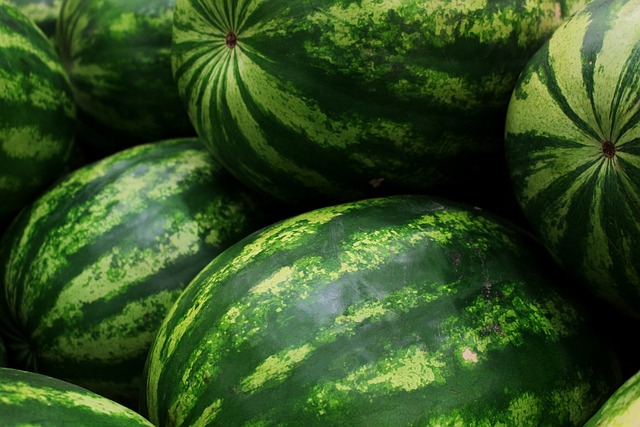
The Nutritional Value of Watermelon Rinds
Watermelon rinds are the green outer layer of the fruit that is often discarded. While humans typically do not consume watermelon rinds, you may wonder if goats can eat them. Understanding the nutritional value of watermelon rinds is essential in determining whether they can be included in a goat's diet.
| Nutrients | Value |
|---|---|
| Fiber | Watermelon rinds are rich in dietary fiber, which aids in digestion and promotes regular bowel movements in goats. |
| Vitamins | Watermelon rinds contain vitamins A and C, which contribute to a goat's overall health and immune system function. |
| Minerals | Watermelon rinds provide minerals like potassium, magnesium, and calcium, which are essential for proper muscle function, nerve transmission, and bone health in goats. |
While watermelon rinds offer various nutrients, it's important to remember that they should be fed to goats in moderation and as part of a balanced diet. Goats primarily require a diet rich in hay or grass, along with proper minerals and water.
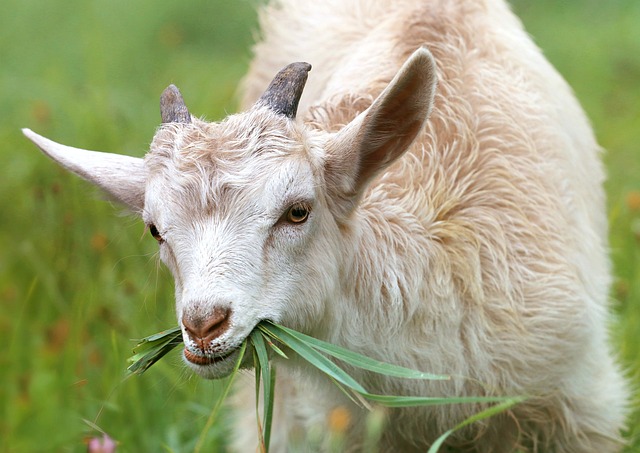
The Risks of Feeding Watermelon Rinds to Goats
While goats are known for their hearty appetites and ability to consume a wide range of food items, it's important to be cautious about what you feed them. Watermelon rinds, in particular, can pose certain risks to goats if given in large quantities or improperly prepared.
One of the primary concerns with feeding watermelon rinds to goats is their high fiber content. While fiber is generally beneficial for their digestive system, excessive fiber intake, especially from tough and fibrous rinds, can lead to digestive issues such as bloating or impaction. Goats have a sensitive digestive system, and ingesting an excessive amount of rinds can disrupt their delicate gut flora.
Additionally, watermelon rinds may contain traces of pesticides or herbicides if the fruit was not organically grown. These chemicals can be harmful to goats and may lead to toxicity or other health problems. It's crucial to ensure the watermelon rinds you feed to goats are safe and free from any chemical residues.
Furthermore, the size and texture of watermelon rinds can present a potential choking hazard to goats. Goats typically prefer smaller food items that they can easily chew and swallow, and large chunks of watermelon rinds may get lodged in their throat or cause them to choke.
Considering these risks, it is recommended to limit the amount of watermelon rinds fed to goats and take necessary precautions. If you choose to offer watermelon rinds as a treat, ensure they are cut into small, manageable pieces to reduce the chances of digestive problems or choking. It is also advisable to consult with a veterinarian or animal nutritionist to determine the appropriate quantities and frequency for feeding watermelon rinds to your goats.
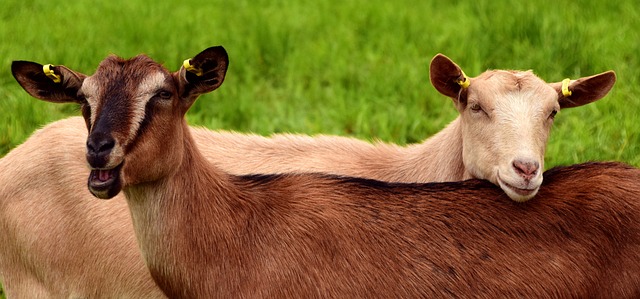
Signs of Digestive Upset in Goats
Goats are known to have sensitive digestive systems, and certain foods may cause digestive issues or upset their stomachs. It is essential for goat owners to be aware of the signs of digestive upset and take appropriate action to prevent any harm to their animals. Here are some common signs to look out for:
| Signs of Digestive Upset in Goats |
|---|
| 1. Diarrhea |
| 2. Decreased or loss of appetite |
| 3. Abdominal discomfort or bloating |
| 4. Excessive salivation or drooling |
| 5. Unusual posture or discomfort while standing or lying down |
| 6. Lethargy or decreased activity levels |
If you notice any of these signs in your goats after feeding them watermelon rinds or any other food, it is important to take prompt action. Diarrhea, in particular, can lead to dehydration, so make sure your goat has access to clean drinking water at all times. Contact a veterinarian if the symptoms persist or worsen.
Remember, each goat's digestive system is unique, and while some goats may tolerate watermelon rinds without any issues, others may have sensitivities. It is crucial to monitor your goats' health diligently and be cautious when introducing new foods into their diet.
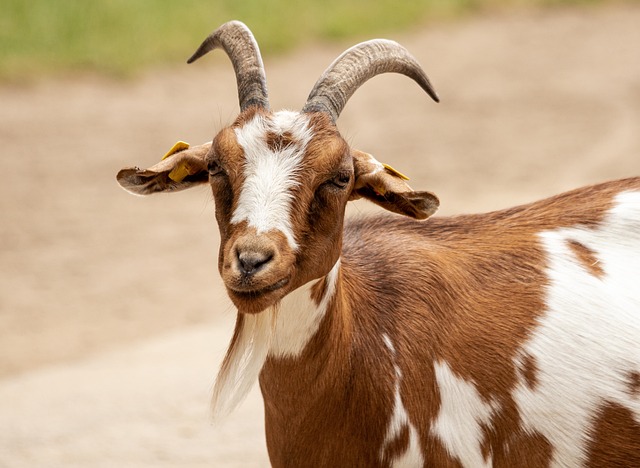
How to Safely Introduce Watermelon Rinds in a Goat's Diet
Before introducing watermelon rinds into a goat's diet, it's important to consider their digestive system and make sure the introduction is done slowly and carefully. Goats have a complex digestive system, primarily designed to process fibrous plant material. Feeding them new foods abruptly can lead to digestive upset or other health issues.
To safely introduce watermelon rinds as a treat for goats:
| Steps | Description |
|---|---|
| 1 | Start with small portions |
| 2 | Gradually increase the amount |
| 3 | Observe for any signs of digestive discomfort |
| 4 | Remove rinds if any negative symptoms occur |
Begin by offering a small piece of watermelon rind to your goat and monitor their reaction. If they tolerate it well without any digestion issues, gradually increase the portion size over time. Keep a close eye on their behavior and look out for signs of digestive discomfort such as bloating, loose stools, or lack of appetite. If any of these symptoms occur, immediately remove the watermelon rinds from their diet and consult a veterinarian if necessary. It's important to prioritize your goat's health and well-being.
Remember, treats like watermelon rinds should not replace a balanced and nutritious diet for goats. They should be given in moderation alongside their regular diet of hay, grass, and appropriate feed. And always ensure their access to fresh and clean water.
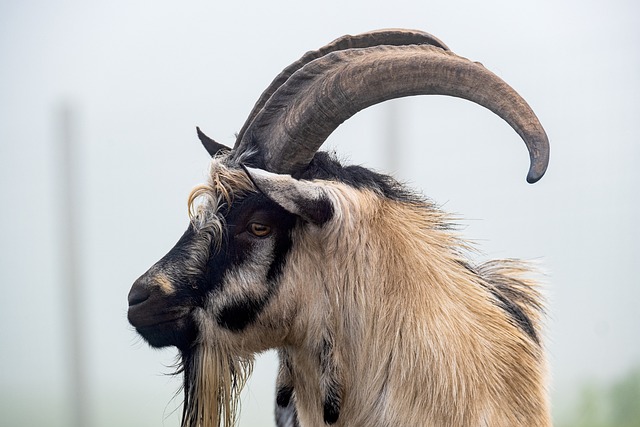
Alternative Healthy Treats for Goats
Goats have a complex digestive system that allows them to efficiently break down and extract nutrients from various types of vegetation. They are classified as ruminants, which means they possess a specialized stomach composed of four compartments: the rumen, reticulum, omasum, and abomasum. This unique digestive system enables goats to digest and ferment fibrous plant materials.
Watermelon rinds, the tough outer layer of the fruit, contain some nutritional value that could benefit goats. They are a good source of vitamins, including vitamin C, and contain small amounts of fiber and minerals. However, the nutritional content may vary depending on the specific watermelon variety and ripeness.
While watermelon rinds may have some nutritional value, there are potential risks associated with feeding them to goats. The tough and fibrous nature of the rinds can be difficult for goats to chew and digest properly. If large pieces of rind are consumed, they may cause digestive blockages or discomfort. Additionally, watermelon rinds have a high water content, which can lead to loose stools or diarrhea if consumed in excess.
It's important to monitor goats for any signs of digestive upset if they have consumed watermelon rinds or any other new food. Common signs may include decreased appetite, stomach discomfort, bloating, diarrhea, or changes in feces consistency. If you notice these symptoms, it's advised to consult a veterinarian for appropriate guidance and treatment.
If you choose to feed your goats watermelon rinds, it's crucial to take proper precautions to ensure their safety and well-being. Start by offering small, manageable portions of rinds, preferably sliced into smaller pieces to aid in digestion. Monitor your goats closely for any signs of digestive distress and adjust the quantity accordingly. Remember to always prioritize a balanced and varied diet, primarily consisting of high-quality hay or forage, for the overall health of your goats.
While watermelon rinds can occasionally be given as a treat to goats, there are numerous alternative options that are safer and more suitable for their digestive system. Some healthy options include:
| Treat | Description |
|---|---|
| Fresh fruits (in moderation) | Small pieces of apples, bananas, or berries. |
| Leafy greens | Such as kale, spinach, or lettuce. |
| Herbs | Mint, parsley, or rosemary can add variety. |
| Vegetable scraps | Carrot tops, cucumber peels, or celery ends. |
| Commercial goat treats | Specifically formulated treats available at pet stores or farm supply centers. |
Remember, treats should only make up a small portion of a goat's overall diet, and it's essential to maintain a balanced nutritional intake for their well-being.
Faqs
-
Can goats eat the seeds of a watermelon?
Yes, goats can eat watermelon seeds in moderation. However, it's essential to not feed them too many seeds at once, as it may cause digestive issues.
-
Are watermelon rinds a good source of nutrition for goats?
Watermelon rinds contain some nutritional value and can be a healthy treat for goats when fed in moderation. They are a source of fiber and certain vitamins, but should not replace their regular diet.
-
What can happen if I feed excessive watermelon rinds to my goats?
Feeding excessive watermelon rinds to goats can lead to digestive upset, such as bloating or diarrhea. It's important to introduce new foods slowly and monitor their reactions for any signs of discomfort.

